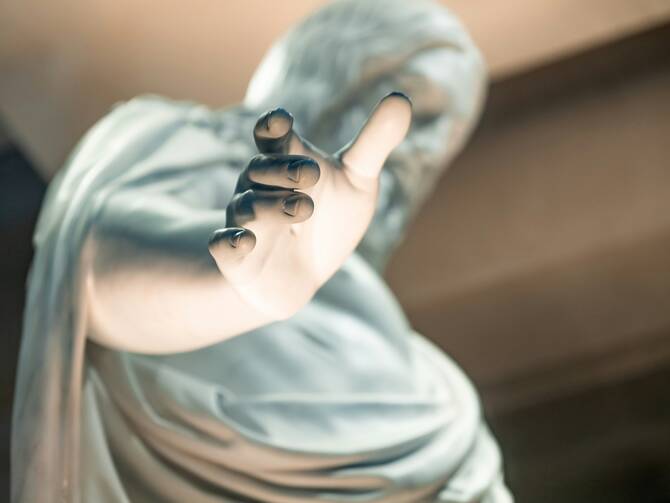A Reflection for the Memorial of St. Athanasius, Bishop and Doctor of the Church
Find today’s readings here.
“Remain in my love.” (Jn 15:9)
Every once in a while, Catholics hear St. Athanasius’ name at Mass. But many of us probably don’t realize who he was and how he shaped the church’s history. But he had a lot to do with the Creed we recite each Sunday—specifically, this part: “consubstantial with the Father.”
Those words are a relatively new English translation of the Nicene Creed. Before 2011, you may remember, we used to say “one in being with the Father” (which I’m told is not as close to the Latin consubstantialem Patri). During the councils that developed the Creed, this was a major point of contention and centered on the relationship between God the Father and Jesus Christ. While Jesus is the “Son of God,” as he refers to himself in Scripture, he is nevertheless “consubstantial with the Father,”meaning Jesus Christ is God.
I must confess that at times I have found myself downplaying the importance of Jesus Christ’s divinity. I was baptized Catholic as an infant, and not only were there several Bibles in our house, but my parents actually read them. So I almost took the divinity of Christ for granted, I suppose. The sky is blue and Jesus is God. He walked on earth, died on the cross, rose from the dead and ascended into heaven. That’s what happened.
I didn’t realize just how big of a deal it was to believe this until, when I was in college, I discussed Christmas with a Muslim friend of mine. He was deeply offended by the idea that God would be a human being. “It’s ridiculous,” he told me. “What sense does it make for God to be a human being?”
I didn’t have an answer then, and I’m not sure I have much of an answer now. But I still believe it’s true. And it makes all the difference.
Take the Gospel reading for today, for example, which reads in part:
“As the Father loves me, so I also love you.
Remain in my love.
If you keep my commandments, you will remain in my love,
just as I have kept my Father’s commandments
and remain in his love.”
This passage, and so much of what Jesus teaches us, only makes sense to me if Jesus is God. I see this passage echoing the Psalms, “Be still and know that I am God” (Ps 46:10). Why would I “remain in his love” if he were anything but God? And why should I keep his commandments if he was anything less?
Conceptually, it seems paradoxical that remaining in anything could somehow set me free, and further, complete my joy. But in fact, I will only find true freedom and joy if I remain in God’s infinite love. That message is so important that God took on human flesh to share it with us.
Correction: A previous version of this piece stated that an older translation of the Nicene Creed was closer to the original Latin. The piece has been updated to correct this error.








